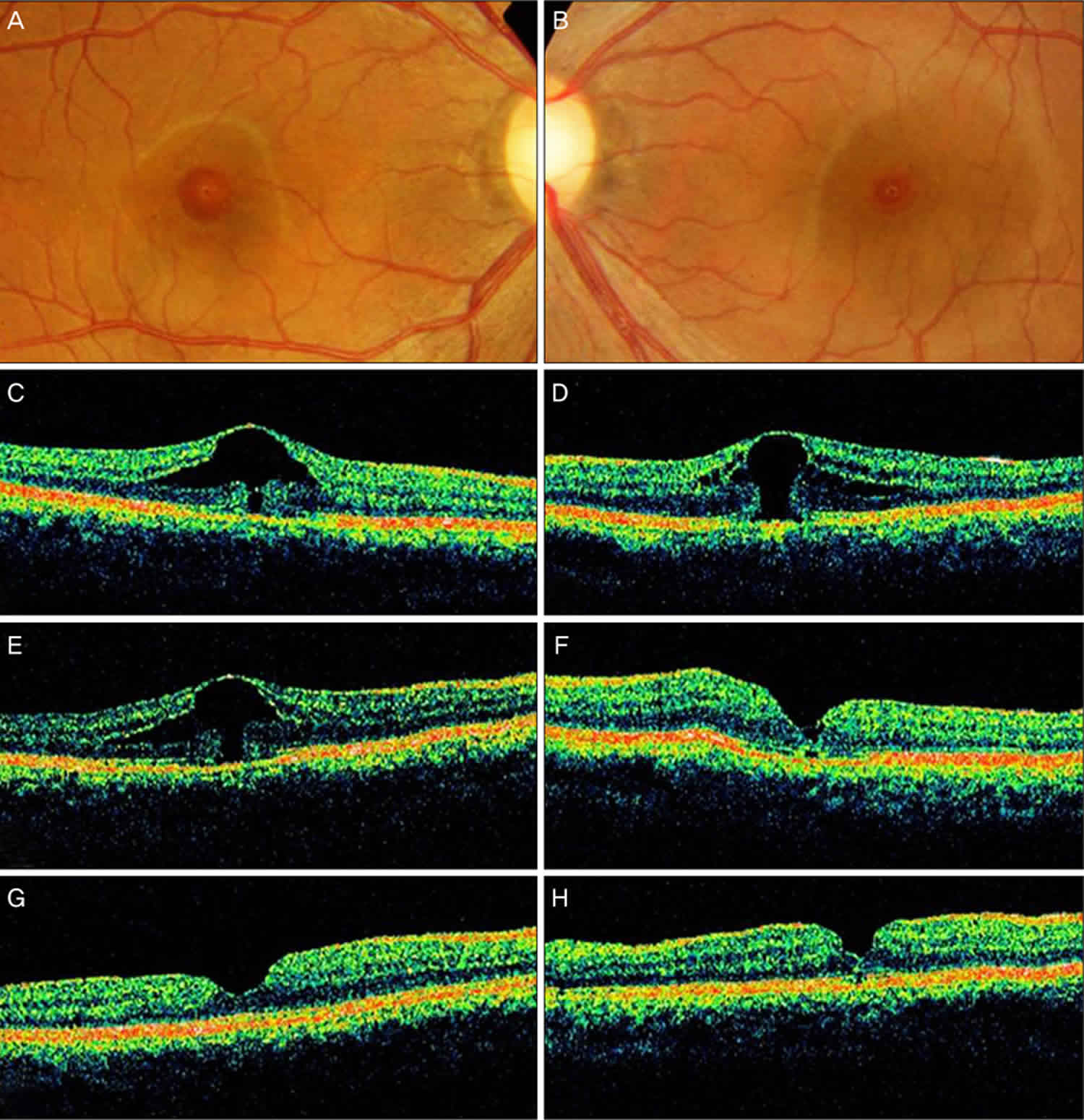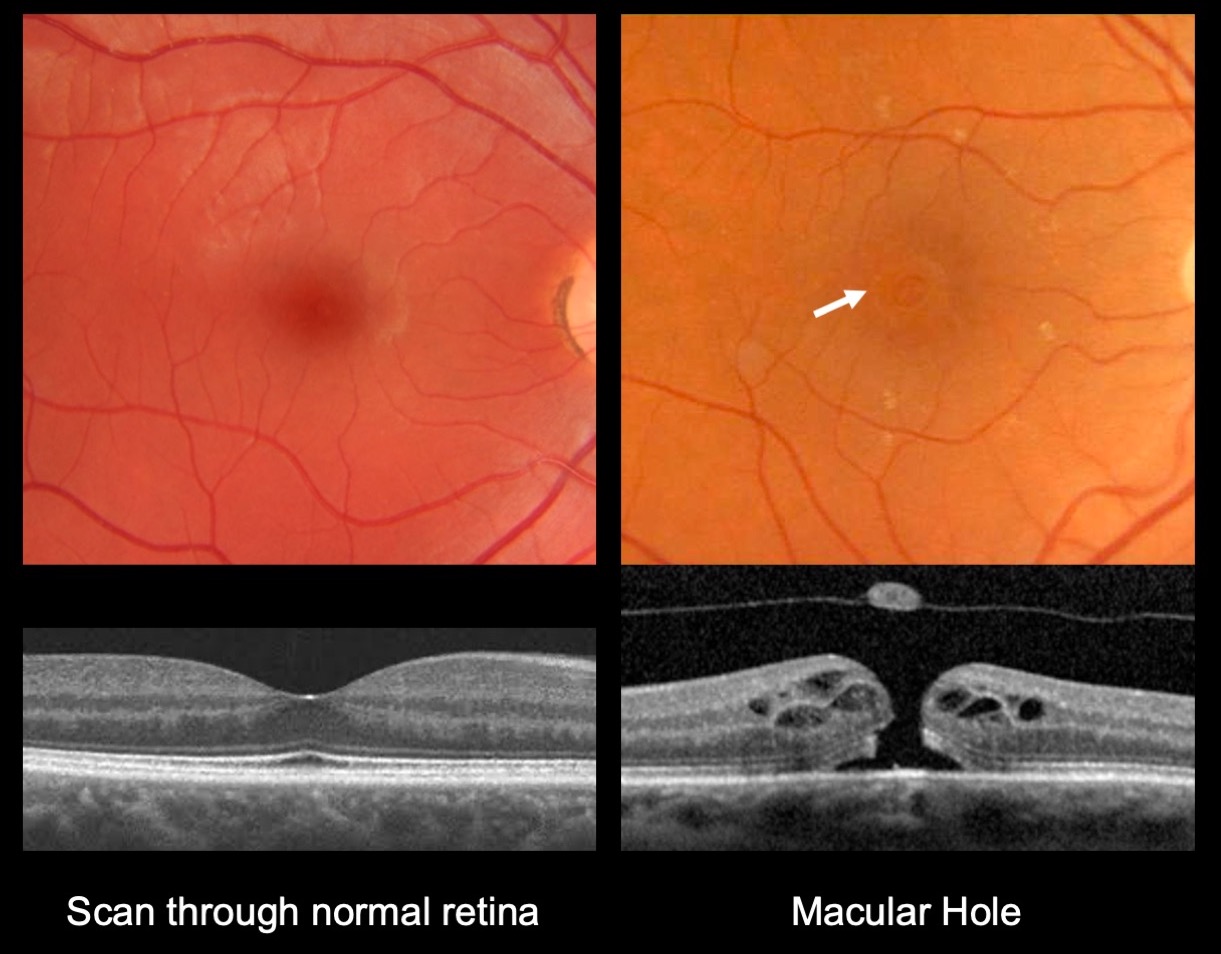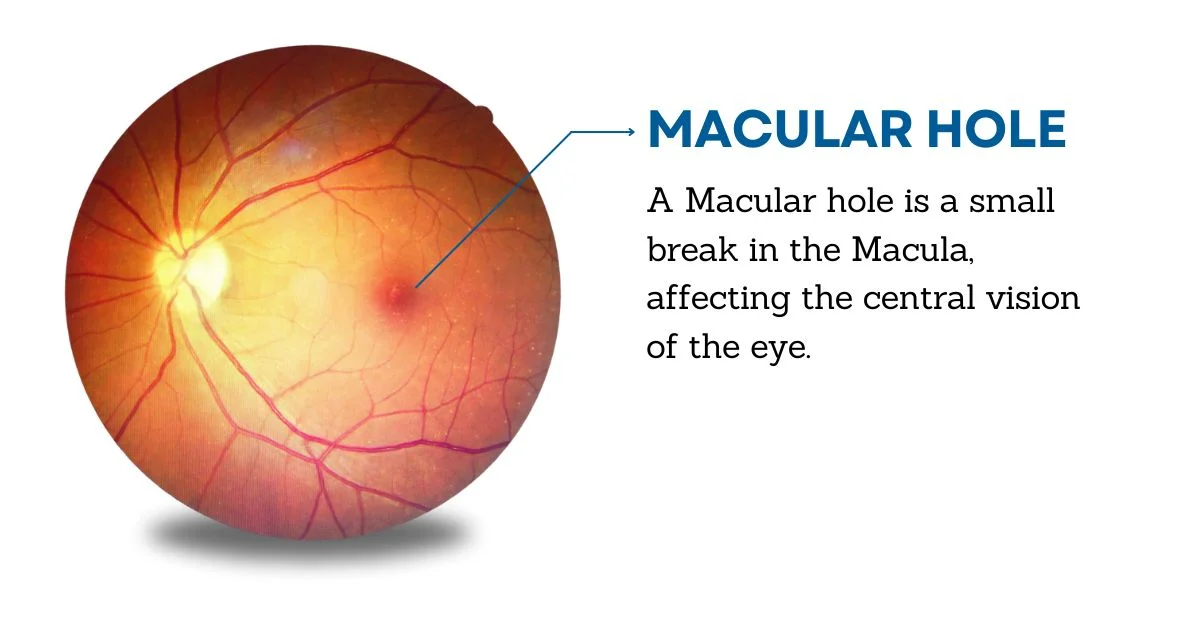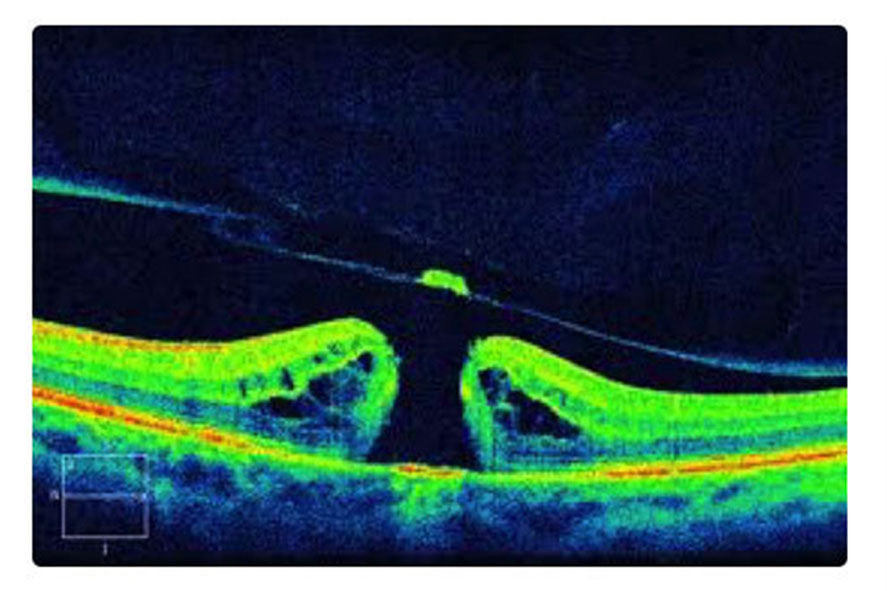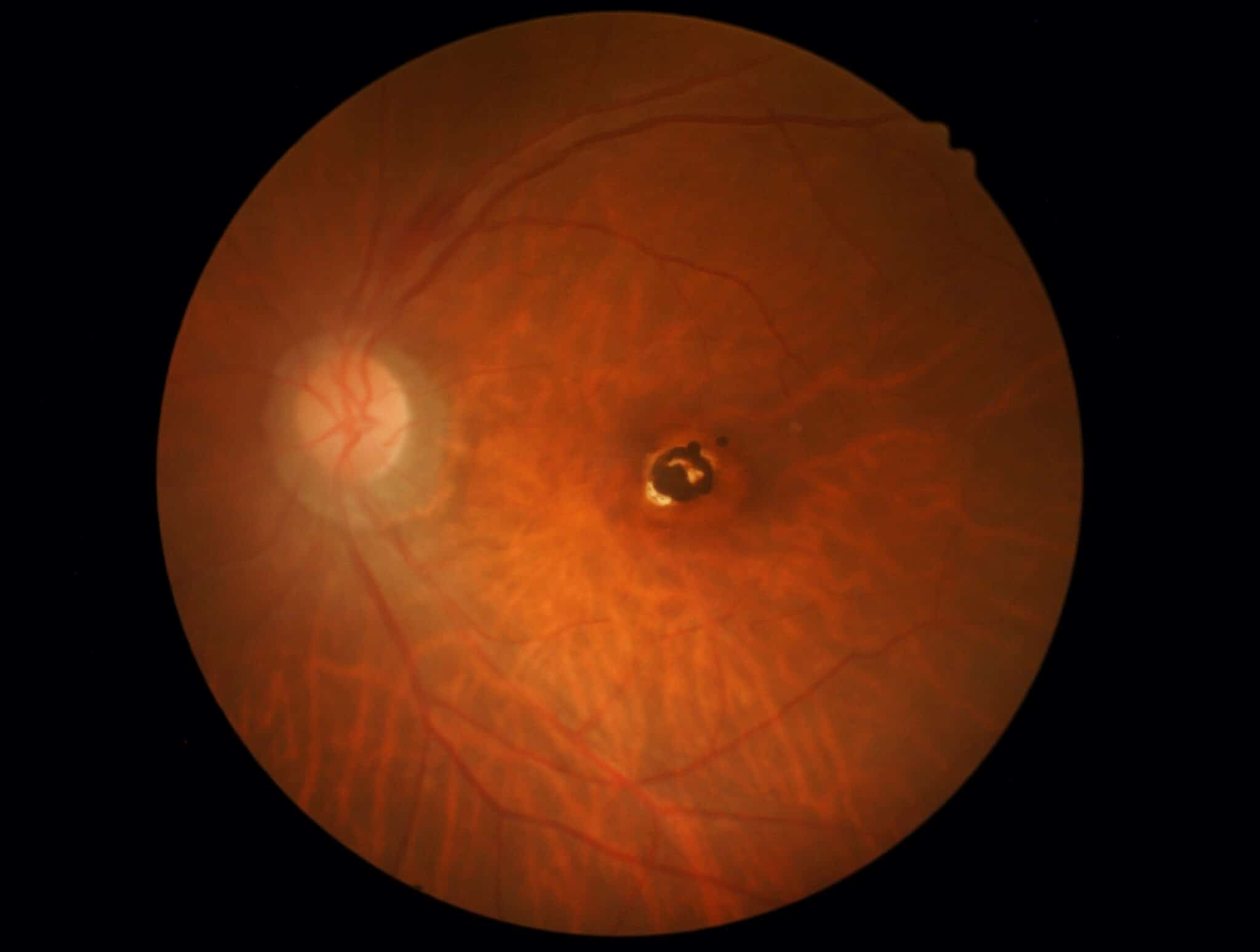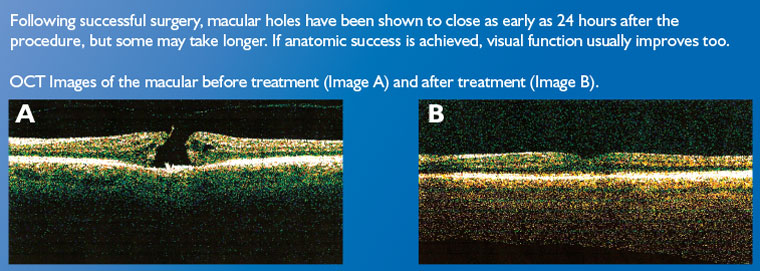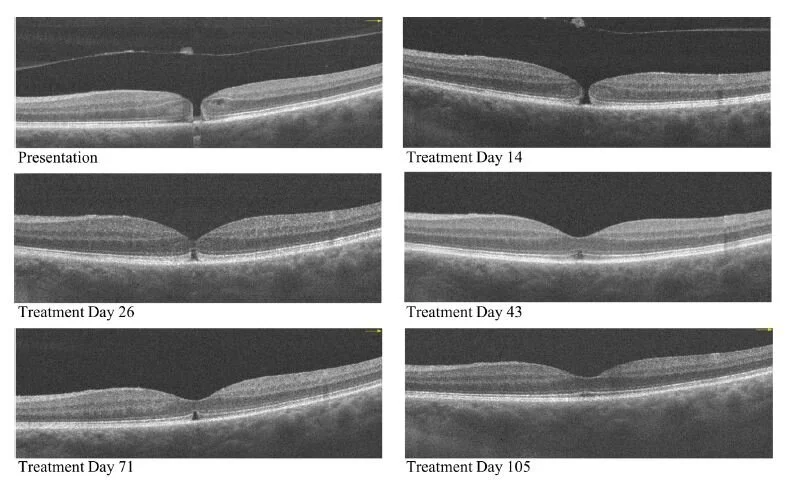When Is It Too Late To Treat A Macular Hole
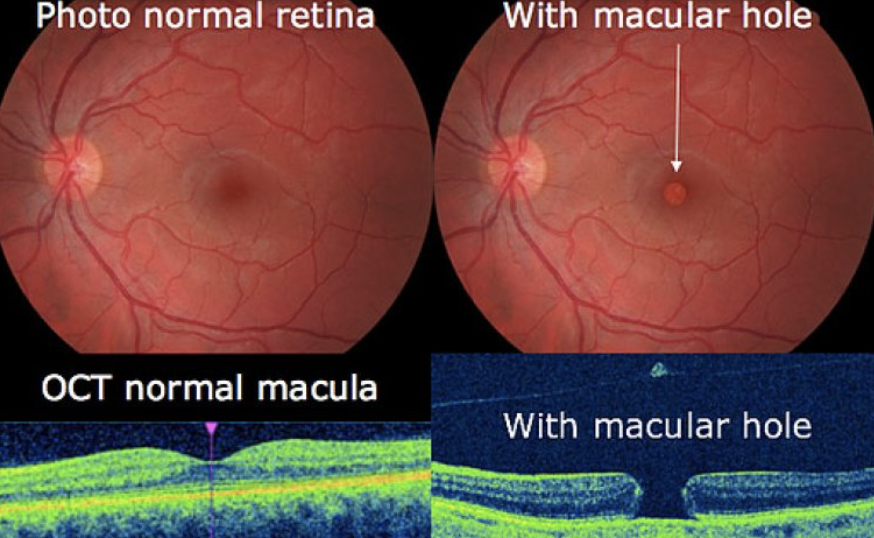
The sinking feeling in the pit of your stomach. A blur distorting the center of your vision. The fear that it might be too late to do anything about it. For those diagnosed with a macular hole, this fear is a stark reality, a race against time to preserve precious sight.
Determining when treatment for a macular hole is no longer effective is a complex question with no simple answer. This article delves into the factors influencing treatment success, exploring the timeframe for optimal intervention, the impact of hole size and duration, and the potential outcomes when treatment is delayed. It also incorporates expert opinions and available research data to provide a comprehensive understanding of this critical issue, empowering patients to make informed decisions about their vision care.
Understanding Macular Holes and Treatment
A macular hole is a small break in the macula, the central part of the retina responsible for sharp, detailed vision. This condition primarily affects individuals over the age of 60. It can lead to blurred or distorted central vision and difficulty reading or performing fine tasks.
The primary treatment for macular holes is vitrectomy surgery. This involves removing the vitreous gel that fills the eye and replacing it with a gas bubble. The gas bubble helps to flatten the macula and close the hole.
The Golden Window: Early Intervention
Experts generally agree that earlier treatment of a macular hole offers the best chance of success. The consensus among retinal specialists is that intervention within six months of symptom onset yields the most favorable outcomes. Studies have consistently demonstrated higher closure rates and better visual acuity improvements in patients who undergo surgery sooner rather than later.
A delay in treatment allows the macular hole to enlarge and the surrounding retinal tissue to become more damaged. This can significantly reduce the likelihood of successful hole closure and limit the extent of visual recovery.
Factors Affecting Treatment Success
Several factors besides the duration of the macular hole influence the success of vitrectomy surgery. These include the size of the hole, the patient's age, and any pre-existing eye conditions.
Larger macular holes are inherently more difficult to close than smaller ones. This is because they require more extensive healing and may have more significant damage to the surrounding retinal tissue.
While age itself isn't a strict contraindication for surgery, older patients may experience slower healing and less visual improvement. Pre-existing conditions like glaucoma or diabetic retinopathy can also complicate the surgical outcome.
The Impact of Delayed Treatment
When treatment is delayed beyond the optimal timeframe, the prognosis for visual recovery diminishes. While surgery may still be attempted, the chances of successful hole closure and significant vision improvement decrease considerably.
In some cases, even if the macular hole is successfully closed after a prolonged delay, the patient may not experience a substantial improvement in visual acuity. This is because the retinal cells in the macula may have suffered irreversible damage.
Furthermore, delayed treatment can lead to further deterioration of vision. This can result in a significant reduction in quality of life and increased difficulty with daily activities.
When is it *Too* Late? Navigating the Gray Area
Defining a specific cutoff point beyond which treatment is futile is challenging. Each case is unique, and the decision to proceed with surgery should be made on an individual basis after careful consideration of all relevant factors.
Even in cases where the macular hole has been present for a year or more, some patients may still benefit from surgery. This is particularly true if the hole is relatively small and the patient's overall eye health is good.
However, it is crucial for patients to have realistic expectations regarding the potential outcomes of surgery when treatment is delayed. They should understand that the chances of significant visual improvement may be limited.
Expert Perspectives and Research Findings
Dr. Emily Carter, a leading retinal specialist at the Wills Eye Hospital, emphasizes the importance of early detection and intervention. "The sooner we can treat a macular hole, the better the chances of restoring good vision," she states.
Research published in the American Journal of Ophthalmology has shown that patients treated within six months of symptom onset had significantly better visual outcomes compared to those treated later. The study also found that larger macular holes were associated with lower closure rates and less visual improvement.
Another study published in the journal Retina suggested that even in cases where the macular hole has been present for more than a year, surgery may still be considered if the patient is experiencing progressive vision loss. However, the study cautioned that the potential benefits must be carefully weighed against the risks of surgery.
Looking Ahead: Empowering Patients and Future Innovations
Early detection is paramount. Regular eye exams, especially for individuals over 60, are crucial for identifying macular holes in their early stages.
Advancements in surgical techniques and technologies are continuously improving the outcomes of macular hole surgery. New approaches, such as the use of autologous internal limiting membrane (ILM) flaps, are showing promise in improving closure rates and visual outcomes, even in challenging cases.
While the timeframe for optimal treatment of a macular hole remains a critical factor, the decision to proceed with surgery should be made in consultation with a qualified retinal specialist. By understanding the factors influencing treatment success and the potential outcomes of delayed intervention, patients can actively participate in their vision care and make informed decisions about their treatment options.
